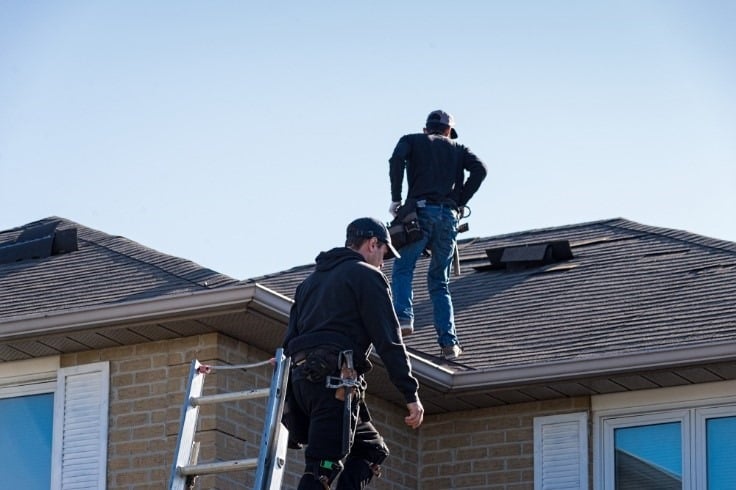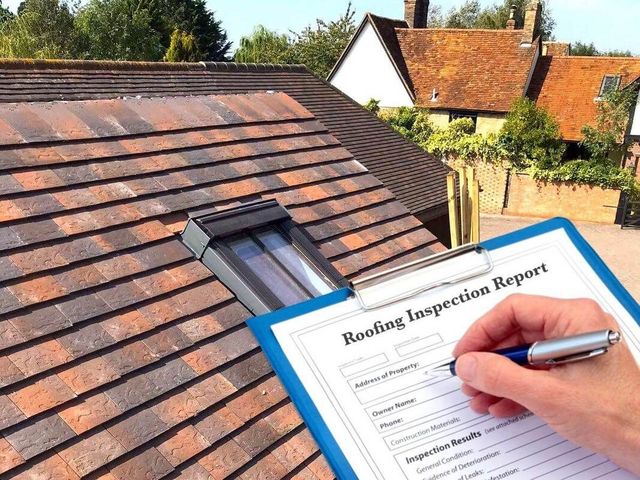Top Reasons a Regular Roof Inspection Austin to Prevent Costly Repairs
The Vital Guide to Roof Inspection: Safeguarding Your Home Versus Usual Damage
Routine roof inspections are an essential component of home upkeep that can avoid minor concerns from rising into significant troubles. Roof Inspection Austin. Home owners usually forget the indicators of wear, such as missing out on tiles or refined leakages, which can compromise the honesty of the entire structure. Understanding the significance of these assessments not just help in preserving your roofing's life expectancy but likewise boosts power performance and general security. As we explore the typical indicators of roofing damage and efficient maintenance methods, it comes to be evident that a proactive approach is vital for safeguarding your investment. What certain aspects should you focus on during your following inspection?
Relevance of Routine Roof Assessments
Regular roofing system examinations are important for keeping the integrity of a building's structure. These evaluations function as an aggressive procedure to identify potential issues before they rise right into costly fixings or significant damage. By conducting regular analyses, homeowner can make certain that their roofs stay in optimum condition, thus extending their life expectancy.
Throughout these assessments, different variables are examined, including the problem of tiles, blinking, and drain systems. Furthermore, the presence of particles, algae, or moss can be detected, enabling timely remediation. Dealing with minor problems early can stop extra extensive problems, such as leakages or architectural wear and tear, which might endanger the safety of the structure.
Moreover, normal roof evaluations add to energy effectiveness. A well-maintained roof decreases warm loss during cooler months and decreases the stress on heating and cooling systems. This, subsequently, can lead to reduced utility expenses and a minimized carbon footprint.
Usual Signs of Roof Damage
Identifying common indications of roofing system damage is important for homeowners to maintain the safety and security and long life of their home. These problems can compromise the roofing's integrity, leading to leakages and more wear and tear.
An additional crucial indication is water stains on ceilings or walls inside the home, which commonly show leaks originating from the roof covering. Homeowners should also check for mold and mildew or mildew development, as these can prosper in damp problems triggered by roof covering leaks.
Flashing around smokeshafts and vents should be looked for corrosion or damages, as damaged blinking can enable water to penetrate the roofing system structure. Sagging locations on the roof surface may suggest architectural issues, requiring instant interest. By identifying these indicators early, home owners can take aggressive steps to deal with roofing system damages, ultimately safeguarding their home from pricey fixings and guaranteeing a resilient roof.
Seasonal Roofing Upkeep Tips
Recognizing the indicators of roof covering damage is just the initial step in making sure the durability of your roof; recurring upkeep is just as essential. Seasonal roof covering upkeep is essential to not only extend the life of your roofing system yet likewise to avoid pricey repairs down the line.
During spring, examine your roofing for any type of indicators of winter season damage, such as broken roof shingles or displaced flashing. Clean gutters and downspouts to make sure correct drainage. In summer season, look for moss or algae development, and think about using a website here safety sealant to avoid dampness accumulation.
As fall techniques, eliminate fallen leaves and debris from your roof covering and gutters. This will aid lessen the threat of water pooling and potential leaks. It's additionally a great time to take a look at the roof covering for any type of signs of wear, such as loose like it shingles or rusted flashing.
DIY Roofing System Evaluation List
An extensive do it yourself roof covering assessment checklist is vital for property owners aiming to keep the integrity of their roof covering system. Begin by checking out the roof covering surface area for any noticeable indications of damage, such as missing, broken, or curling shingles - Roof Inspection. Pay close focus to areas around smokeshafts, skylights, and vents, as these prevail leakage points

Moving to the interior, inspect the attic room for indicators of water intrusion, such as stains or mold growth. Make certain proper ventilation to stop wetness accumulation, which can result in deterioration.
## When to Work With a Professional
While several homeowners can perform basic roof assessments, particular scenarios call for the proficiency of a professional. If you spot substantial damages, such as large missing tiles, visible sagging, or water discolorations on the ceiling, it is crucial to speak with a certified roofer. These problems may suggest underlying architectural troubles that need immediate interest.
Furthermore, if your roof is nearing the end of its expected life-span-- typically 20 to 25 years for asphalt shingles-- it Get the facts is wise to have an expert examination. Experienced assessors can analyze the roof's condition and provide informed recommendations on fixing or replacement.
Extreme weather occasions, such as hailstorms or heavy winds, also require professional examination. Also small damage can cause considerable issues if left unchecked. Additionally, if you're taking into consideration selling a residential or commercial property or getting, an expert inspection can reveal potential concerns that may affect the deal.
Conclusion
Normal roofing assessments are important for maintaining the integrity of domestic frameworks. Positive evaluations allow the early identification of prospective issues, thereby stopping pricey repairs and ensuring energy efficiency. By adhering to seasonal maintenance pointers and using an extensive do it yourself list, house owners can effectively check their roofings. The competence of a professional should not be ignored, particularly when significant damage is thought. Focusing on roofing system inspections ultimately adds to a secure and protected living environment.

During spring, inspect your roof covering for any type of indications of winter season damages, such as fractured shingles or displaced flashing. Begin by checking out the roofing system surface for any type of noticeable signs of damage, such as missing out on, split, or curling shingles.